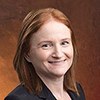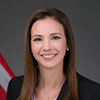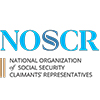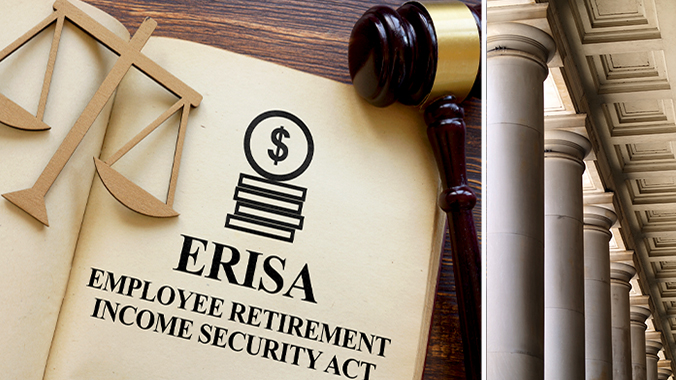Fall 2025 National Conference – Track II (Presented by National Organization of Social Security Claimants’ Representatives)






















15 hour CLE
Get this course, plus over 1,000+ live webinars.
Learn More
Program Summary
Join us September 9-12, 2025, for an in-depth, dynamic learning experience designed to keep you, connected, and up to date in your Social Security disability practice.
What We Offer: Continuing education sessions led by experienced, well-versed professionals and peers Legal, policy, and advocacy updates that directly impact your work.
Key topics to be discussed:
- The Social Security Bootcamp (Part I)
- NOSSCR Keynote: SSA Commissioner Bisignano
- The Social Security Bootcamp (Part II)
- The Social Security Bootcamp (Part III)
- Winning With Limited Scope Remands
- Trauma-Informed Representation— Advocating for Clients with Psychiatric Disabilities
- General Session
- Social Security Overpayments Update
- The Duties We Owe to Each Other: Ethics in Social Security Disability Representation
- It’s Not Just the IQ Score—Developing and Winning Cases for Claimants with Borderline Intelligence
- Association of Administrative Law Judges Updates
- Why Your Client’s ERISA LTD Claim Should Matter to You
- Effective Advocacy with a Focus on Hard-to-Win Cases
- Consultative Examinations – Let's Consult!
- Panel Discussion: Using AI to Reimagine Efficiency in Social Security Disability Practices
- Open the Locks on the Case Docs
- VA Disability—What You Need to Know When Advocating for Your Client
- OGC Matters & Social Security Representation Ethics
This course is co-sponsored with myLawCLE.
![]() Closed-captioning available
Closed-captioning available
Speakers
 Jennifer Cronenberg, Senior Counsel & Director of Legal Information | NOSSCR
Jennifer Cronenberg, Senior Counsel & Director of Legal Information | NOSSCR
As Senior Counsel and Director of Legal Information, Jennifer is responsible for conducting advocacy work with the Administration, helping shape continuing education programming, and serving as an expert advisor to NOSSCR members. She also serves as the Managing Editor for NOSSCR’s monthly Forum publication. Jennifer is NOSSCR’s primary point of contact for fees and other legal issues where NOSSCR helps members interface with Social Security. She has worked as a Social Security attorney since 2009 and has extensive experience representing claimants and training advocates. She is admitted to practice in Maryland and Washington, D.C
 Ashley Hartman Sappenfield
Ashley Hartman Sappenfield
 Laura Beth Waller, Chief Strategy Officer & Deputy General Counsel | NOSSCR
Laura Beth Waller, Chief Strategy Officer & Deputy General Counsel | NOSSCR
Laura Beth Waller is NOSSCR’s Chief Strategy Officer & Deputy General Counsel. Previously, as a member of NOSSCR’s Board of Directors she represented the Fourth Circuit and served on the Executive Committee as Assistant Treasurer. She was instrumental in many aspects of NOSSCR’s recent transition and growth. She led NOSSCR’s Next Gen committee, increasing the number of members participating, adding several successful events. She is a frequent presenter on federal court advocacy, and regularly attends meetings and social events with members of congress in Washington DC. Before taking the role of NOSSCR’s CSO, Laura Beth practiced in district court work at Martin, Jones, and Piemonte. She earned her J.D. at NCCU School of Law and her LL.M. in taxation at the University of Washington. She is admitted to practice in North Carolina, Washington, and Georgia
 John Metsker | The Metsker Law Firm
John Metsker | The Metsker Law Firm
John Metsker attended law school at The University of San Francisco School of Law where he served as a technical editor on the Maritime Law Journal and was a recipient of a CALI award for outstanding academic achievement. He is a member of the California State Bar and has been admitted to practice before multiple U.S. district courts, the United States Court of Appeals for the Ninth Circuit, and the Supreme Court of the United States. Mr. Metsker has been representing disabled individuals before the Social Security Administration since 2010.
John Metsker is a frequent speaker on vocational issues that arise in the context of Social Security Disability cases. His 2023 presentation “Mastering the VE Cross-Examination” is now available in the NADR Store.
Mr. Metsker was also featured on episode 13 of the NADR Podcast, titled “Getting to know John Metsker.”
 Ambrosia Crump, MPA, LCSW, EDPNA | Dignity Disability Solutions, LLC
Ambrosia Crump, MPA, LCSW, EDPNA | Dignity Disability Solutions, LLC
I am a Pioneering (iD-DISC assessment) Protagonist (ENFJ-Myers-Briggs) who’s not afraid to take the lead and work hard alongside passionate people using informed strategies to change our world.
 Aleyda Toruno | Cornell University
Aleyda Toruno | Cornell University
Aleyda has been advocating for the rights of people with disabilities for over 20 years. Prior to her current position at Cornell, she represented clients in mediations and hearings in Social Security work incentives, vocational rehabilitation, special education, California Regional Center services, MediCal and managed the Work Incentive Planning and Assistance project at Disability Rights California. Aleyda joined Cornell in 2023 where she provides work incentives training, technical assistance and support at the Yang-Tan Institute’s Work Incentive Support Center.
 Freddie Effinger | Effinger Law
Freddie Effinger | Effinger Law
Freddie spent the majority of his diverse legal career working as a Social Security Administration attorney, gaining knowledge and expertise in all aspects of the Social Security disability program. After nine years with SSA, Freddie began representing clients in all disability and non-disability matters and truly found his stride. A frequent presenter, Freddie has worked at both the Cumberland School of Law and the University of Alabama School of Law as an Adjunct Professor.
 J. Asha Sharma | Disability Partners PLLC
J. Asha Sharma | Disability Partners PLLC
Asha’s 30+ years of experience as a lawyer help her to be an effective advocate for her clients. She has been an attorney since 1991 and has practiced Social Security Disability law since 2005. She has handled more than a thousand Social Security Disability hearings. Asha has done numerous presentations about the disability process. She is a member of the National Organization for Social Security Claims Representatives and has presented to this organization multiple times. She was co-chair of the Social Security Section of the Minnesota State Bar Association.
Asha has had a wide range of experience in the law. For ten years, she worked for the Minnesota Department of Human Services in disability health, children’s mental health, and other areas. She was an Adjunct Professor at the William Mitchell School of Law from 2004 to 2006.
Asha graduated with honors from the University of Minnesota Law School, where she was an editor at the Minnesota Law Review. Upon graduation, she clerked for the Minnesota 3rd District Court (Rochester, MN) and later at the Minnesota Court of Appeals.
 Paul McGrath | Disability Partner PLLC
Paul McGrath | Disability Partner PLLC
Paul McGrath has worked in disability law since 2011, when he first started advocating for people with disabilities as a law intern through Albany Law School’s Civil Rights and Disability Law Clinic. During his work in the law clinic, Paul provided protection and advocacy services for people with profound disabilities in institutionalized settings, for which he earned the outstanding clinical student award. After graduating with honors from Albany Law School in New York, Paul came on board with Disability Partners while also working as a volunteer attorney with Legal Aid’s Minnesota Disability Law Center.
Paul has represented hundreds of Social Security disability claimants at the initial, hearings, and Appeals Council stages of the administrative disability process. He also represents claimants in Federal Court. Paul has done numerous presentations about the disability process. He is a member of the National Organization for Social Security Claims Representatives and has presented to this organization multiple times.
 Megan DiTolla | West Coast Disability Legal Center
Megan DiTolla | West Coast Disability Legal Center
Megan F. DiTolla is an attorney licensed to practice law in California. Originally from Amesbury, Massachusetts, Megan received her undergraduate degree in Journalism from the University of Colorado at Boulder. She graduated from California Western School of Law in 2004 and has been advocating on behalf of the disabled community ever since.
Besides protecting her clients’ interests when it comes to their insurance policies, Megan has also performed over 2,000 Social Security Disability Insurance “(SSDI”) and Supplemental Security Income (“SSI”) hearings across the Western United States and has handled countless other cases at the lower administrative levels. Megan also assists other law firms, nonprofits and medical providers who want to learn the ins and outs of SSDI/SSI system, so they can better help the populations they serve. She is admitted to practice law in all district courts of California, as well as the 9th Circuit Court of Appeals.
 Cari M. Schwartz | Kantor & Kantor LLP
Cari M. Schwartz | Kantor & Kantor LLP
Cari M. Schwartz is a partner at Kantor & Kantor LLP, a plaintiff’s ERISA firm with headquarters in Northridge, CA. Founded over 30 years ago, Kantor & Kantor has established itself as one of the country’s premier ERISA and long term disability law firms and has secured hundreds of millions of dollars in long-term disability claims, appeals, and litigation on behalf of clients nationwide.
 Sarah Thompson | Homeless Action Center (HAC)
Sarah Thompson | Homeless Action Center (HAC)
Sarah Thompson, Esq. is a senior staff attorney at the Homeless Action Center (HAC) in Oakland, California where she represents disabled unhoused and low income folks in public benefits cases. At HAC, she is an original member of the Justice, Equity, Diversity, and Inclusion committee which is devoted to interrogating bias and ensuring equitable outcomes for HAC’s diverse client population. Additionally, she has conducted trainings for law students and CASA volunteers on solidarity vs saviorism in the legal profession. Sarah went to law school at Northeastern University School of Law in Boston, Massachusetts. While there, she interned for State Senator Karen Spilka and for Patti B Saris, US district court judge for the district of Massachusetts. In addition to her legal work, she is the parent of a 12-year-old who attends San Francisco Unified School District. Prior to going to law school. Sarah was a Teach for America Corp member in Baltimore, Maryland.
 Yasamin Elahi-Shiraz | Homeless Action Center (HAC)
Yasamin Elahi-Shiraz | Homeless Action Center (HAC)
Yasamin Elahi-Shirazi, Esq. is a Staff Attorney at HAC. She joined the organization in 2022. Yasamin was born in Tehran, Iran and immigrated to San Diego, CA. She received a B.A. in Politic Science from UC Riverside and graduated from Golden Gate University, School of Law in San Francisco with a specialization in Public Interest Law. Yasamin is a part of the National Lawyers Guild and likes to volunteer her services to local communities. In her free time, she enjoys engaging in civil advocacy by bringing awareness to injustices taking place locally and around the world by sharing ways we can all take part in helping our neighbors and fellow humans.
 Andrew N. Sindler | Law Offices of Andrew N. Sindler LLC
Andrew N. Sindler | Law Offices of Andrew N. Sindler LLC
Providing outstanding legal services to existing and new clients, individuals, businesses and the like, in a variety of practice areas, both litigation and transactional or regulatory/compliance work. Providing contract services to several local and national companies and firms.
In addition to his work as an attorney and a mediator, Andrew also serves as a part-time adjunct law professor at his alma mater, University of Baltimore School of Law, as well as at Community College of Baltimore County. He is happily married with two beautiful daughters. When he is not busy fighting for his disability clients, Andrew enjoys spending time with his family and friends, reading, playing golf and other sports, cheering on the Orioles and Ravens, listening to music and playing piano and guitar, watching movies and TV shows, and attending theatre.
 Kate Bell
Kate Bell
Kate is a seasoned professional in the Legal Tech industry, on a mission to transform how law firms do business and deliver value. From her years of hands-on experience as the office manager of a non-profit law firm to then consulting with law firms across North America to streamline their practices, Kate has honed her skills in identifying inefficiencies and addressing pain points within the law firm landscape. She’s all about turning challenges into opportunities, building bold partnerships, and helping law firms break through the status quo to drive real, lasting change. Kate believes the future of law is about innovation, access, human connection, and a great tech stack.
 Nick Coleman
Nick Coleman
 Luke Connally
Luke Connally
Luke Connally is a retired combat wounded Marine who first got his start in the disability space as a beneficiary due to life altering injuries and then later as a VA claim adjudicator for VA. He also spent time working for the Chair of the U.S. House Veterans’ Affairs subcommittee. Luke is co-founder of Superinsight.ai, which uses AI to streamline medical-record review and analysis for disability claims, helping advocates reduce prep time and improve client outcomes.
 Bryan Konoski
Bryan Konoski
 Nikhil Pai
Nikhil Pai
 James Vancel
James Vancel
 Jacqueline McCormack | Cameron Firm PC
Jacqueline McCormack | Cameron Firm PC
Before her advocacy for Veterans, Jacqueline worked as an Attorney-Adviser for the Social Security Administration’s Office of Disability Adjudication & Review (Office of Appellant Operations, Division of Quality and Review). Jacqueline reviewed SSA favorable hearing decisions on “own motion” to determine whether to file a formal own motion review or effectuate the grant. Her unique team pioneered “focused reviews” to audit the quality of particular ALJ hearings and decisions, as well as issue-specific reviews and large-scale fraud. Our findings were presented directly to the Deputy Commissioner. Jacqueline has audited hundreds of SSA hearings and reviewed thousands of Favorable Hearing Decisions.
 David Camp, CEO and General Counsel | NOSSCR
David Camp, CEO and General Counsel | NOSSCR
David Camp is the CEO and General Counsel of NOSSCR, where he oversees the organization’s administration and management. Prior to being named CEO, he served as NOSSCR’s Chief Policy Officer, a role in which he oversaw the organization’s government affairs, SSA administrative, and litigation advocacy.
Before joining NOSSCR’s staff, David served on NOSSCR’s Board of Directors, including as President from October 2021 through March 2023. In his term as President, David led NOSSCR’s transition to a new home in Washington, with an emphasis on advocacy and expanded member services.
David began his career at a legal services program, before serving as clerk to Missouri’s first disabled Supreme Court justice. In private practice, David represented disabled claimants for more than 25 years, focusing on service to the homeless. He operated a firm while handling cases administratively and before federal courts in the undati 6th, 7th, and 8th Circuits.
He is a member of the Editorial Advisory Committee for West’s Social Security Reporting Service, and author of both “Current Social Security News” and “Social Security Claims and Procedures” for Westlaw. He founded the Administrative Law Committee for the Bar Association of Metropolitan St. Louis, and is a Past President of the Missouri Lawyers Trust Account Foundation. He is a recipient of the Social Security Region 7 Commissioner’s Public Service Award, and NOSSCR’s Sweeney Award for Distinguished Service honoring his work litigating an end to the Secret ALJ Policy.
Agenda
TRACK II
DAY 1: TUESDAY, SEPTEMBER 9
The Social Security Bootcamp
The Social Security Bootcamp is 3-part foundational training that is perfect for newer practitioners or anyone seeking a structured refresher. This program delivers a fast-paced, comprehensive background to Social Security disability law, with practical tips from seasoned practitioners. While the three sessions are designed as one collective training, separate material will be covered in each, so you’re welcome to pick-and-choose which session(s) to attend.
The Social Security Bootcamp (Part I) | 11:45am – 12:45pm
This session will provide an introduction to the various types of Social Security benefits, with a focus on the two main types of adult disability benefits. We will also provide a primer on how to register as a representative and how to properly construct a fee agreement, plus advice on what to know and what to ask when intaking new clients.
- Jennifer Cronenberg, Senior Counsel & Director of Legal Information, National Organization of Social Security Claimants’ Representatives
- Ashley Hartman Sappenfield, Secretary, National Organization of Social Security Claimants’ Representatives
- Laura Beth Waller, Chief Strategy Officer & Deputy General Counsel, National Organization of Social Security Claimants’ Representatives
Break | 12:45pm – 2:00pm
The Social Security Bootcamp (Part II) | 2:00pm – 3:00pm
This session will take a deep dive into the life cycle of a disability claim. This session will cover how to prove disability utilizing the Five Step Sequential Evaluation Process AND how to successfully navigate the logistics of filing and appealing a claim—from initial claim through Federal Court.
- Jennifer Cronenberg, Senior Counsel & Director of Legal Information, National Organization of Social Security Claimants’ Representatives
- Ashley Hartman Sappenfield, Secretary, National Organization of Social Security Claimants’ Representatives
- Laura Beth Waller, Chief Strategy Officer & Deputy General Counsel, National Organization of Social Security Claimants’ Representatives
Lunch | 3:00pm – 5:00pm
The Social Security Bootcamp (Part III) | 5:00pm – 6:00pm
This session will offer a close look at the logistics of hearing preparation, including how to prepare your client, how to access and review a claimant’s electronic file, and how to request, submit, and properly disclose evidence. We will also cover the post-favorable process, including a brief segment on how to advise your client about return-to-work options.
- Jennifer Cronenberg, Senior Counsel & Director of Legal Information, National Organization of Social Security Claimants’ Representatives
- Ashley Hartman Sappenfield, Secretary, National Organization of Social Security Claimants’ Representatives
- Laura Beth Waller, Chief Strategy Officer & Deputy General Counsel, National Organization of Social Security Claimants’ Representatives
Break | 6:00pm – 6:30pm
Winning With Limited Scope Remands | 6:30pm – 7:30pm
When a disability case is remanded by a district court, the scope of the court’s remand order can often determine the outcome upon remand. Although the Social Security Administration prefers to decide all issues de novo when conducting remand hearings, the agency’s preference is not binding upon the courts. Using creative advocacy techniques, plaintiffs’ attorneys can effectively “lock in” favorable findings from the original ALJ decision, thus preventing a subsequent ALJ from upsetting those findings on remand.
- John Metsker
Break | 7:30pm – 7:45pm
Trauma-Informed Representation— Advocating for Clients with Psychiatric Disabilities | 7:45pm – 8:45pm
Representing claimants with mental impairments requires a trauma-informed approach to build trust, gather strong evidence, and address credibility challenges. This session will explore strategies for working with clients experiencing PTSD, anxiety, and psychotic disorders, including adapting communication to minimize retraumatization, assessing functional limitations, and overcoming documentation gaps. Attendees will learn how to navigate symptom fluctuation and inconsistencies in medical records to strengthen cases. By integrating clinical insights with legal advocacy, representatives can improve claimant engagement and case outcomes for individuals with psychiatric disabilities.
- Ambrosia Crump, MPA, LCSW, EDPNA, Dignity Disability Solutions, LLC
DAY 2: WEDNESDAY, SEPTEMBER 10
Social Security Overpayments Update | 4:30pm – 5:30pm
In 2024 SSA made several changes to the waiver of overpayment process and other key changes to make it easier to pay back a correct overpayment. These POMS changes are significant and will allow more people to be able to obtain waivers of social security overpayments. Some of these key changes include shifting the burden of proving an overpayment to SSA and establishing 20 situations when SSA can presume that the beneficiary is not at fault for creating the overpayment. This session will use hypotheticals to help explain the new concepts.
- Aleyda Toruno, Senior Extension Associate, Cornell University
Break | 5:30pm – 6:30pm
The Duties We Owe to Each Other: Ethics in Social Security Disability Representation| 6:30pm – 7:30pm
The presentation “The Duties We Owe: Ethics in Social Security Disability Representation” explores the ethical obligations of representatives assisting clients with Social Security Disability (SSD) claims. It outlines who may serve as an SSD representative under 20 C.F.R. § 404.1705, including both attorneys in good standing and qualified non-attorneys. The slides emphasize the importance of competence, honesty, professionalism, and respect for clients, drawing from both legal regulations and broader ethical principles. The presentation highlights the responsibility to treat clients with dignity, ensure accurate and fair representation, avoid conflicts of interest, and uphold the integrity of the legal process.
- Freddie Effinger, Attorney, Effinger Law
DAY 3: THURSDAY, SEPTEMBER 11
It’s Not Just the IQ Score — Developing and Winning Cases for Claimants with Borderline Intelligence | 12:00pm – 1:00pm
Winning cases involving “borderline intelligence” and similar cognitive issues can be challenging. Cognitive limitations are often not as clear cut as for individuals with lower IQs. Claimants may have learned to “mask” their functional limitations, and providers are not always aware of the severity of the cognitive issues. Adjudicators can be skeptical and often find that such claimants can perform unskilled work. Presenters have focused on adaptive functioning and other strategies to develop and win such claims. Presenters will share strategies for developing evidence of low “adaptive functioning,” mining state agency consultants and consultative exam findings, arguing applicable Listings, developing evidence other impairments, and pursuing appeals in federal court and other strategies for winning such cases.
- J. Asha Sharma, Attorney, Disability Partners PLLC
- Paul McGrath, Attorney, Disability Partner PLLC
Break | 1:00pm – 2:30pm
Why Your Client’s ERISA LTD Claim Should Matter to You | 2:30pm – 3:30pm
The number of ERISA sponsored long term disability benefit plans for small and large employers has risen. As more and more people apply for both SSDI benefits and ERISA long term disability benefits, understanding ERISA claims and the governing policies and exclusions is more important than ever before to protect your clients’ interests and help them get the benefits they need. This session will provide essential guidance for SSDI attorneys and representatives on navigating the ERISA long term disability claim process and provide an overview of some of the policy exclusions and policy definitions that might affect your client.
- Megan DiTolla, Attorney, West Coast Disability Legal Center
- Cari M. Schwartz, Partner, Kantor & Kantor LLP
Lunch | 3:30pm – 5:00pm
Effective Advocacy with a Focus on Hard-to-Win Cases | 5:00pm – 6:00pm
This session will provide the best practices on how to achieve success in every case despite some of the greatest challenges, including lack of medical documentation and substance use. We will share strategies for effective advocacy of clients from the perspective of legal services attorneys who do not engage in merit screening when taking on cases and still maintain a high allowance rate. We will draw from harm reduction and trauma-based advocacy to educate advocates and attorneys on how to effectively make every case a winner through all steps of a social security case. We focus on empowering attorneys to support self-determination through relationship building and cultural competency.
- Sarah Thompson, Senior Staff Attorney, Homeless Action Center (HAC)
- Yasamin Elahi-Shiraz, Staff Attorney, Homeless Action Center (HAC)
Break | 6:00pm – 6:15pm
Consultative Examinations— Let’s Consult! | 6:15pm – 7:15pm
This far too often overlooked aspect of claims at the administrative levels leads to way more denials than it should. This session covers effective strategies and ways to prepare clients for both physical and mental CE’s, how to assess inaccuracies, falsehoods or contradictions in the CE reports, how to get bad CE reports stricken from the record and/or have alternate CE’s ordered with more favorable providers, and how to report CE providers who flagrantly disregard the rules, all to develop a well-rounded and supportive record for the claimant to lead to eventual approvals.
- Andrew Sindler, Proprietor, Law Offices of Andrew N. Sindler LLC
Break | 7:15pm – 7:30pm
Panel Discussion: Using AI to Reimagine Efficiency in Social Security Disability Practices | 7:30pm – 8:30pm
Explore how artificial intelligence is reshaping the future of Social Security Disability law in the session Using AI to Reimagine Efficiency in Social Security Disability Practice. In this forward-looking panel, Bryan Konoski, Nikhil Pai, Luke Connally, Kate Bell, Nick Coleman, and James Vancel will discuss how AI is transforming operational workflows, streamlining case management, and helping SSD firms increase capacity without sacrificing quality.
- Kate Bell
- Nick Coleman
- Luke Connally
- Bryan Konoski
- Nikhil Pai
- James Vancel
DAY 4: FRIDAY, SEPTEMBER 12
Open the Locks on the Case Docs | 11:30am – 12:30pm
NOSSCR recently worked with SSA to unlock the A and B sections of the Case Documents at the early administrative levels of the adjudicative process. In this practical, strategy-driven CLE session, you’ll learn how to make the most of early access to those documents to draft more persuasive arguments, spot overlooked issues, and ultimately avoid surprises at hearing. We will walk through the structure of the eFolder, highlight the POMS that correspond to crucial portions of the DDE and DDT, and discuss evidence disclosure and submission more broadly. This session will also touch on how to troubleshoot common ARS issues and how to best utilize SSA’s status reports.
- Jennifer Cronenberg, Senior Counsel & Director of Legal Information, NOSSCR
Break | 12:30pm – 12:45pm
VA Disability—What You Need to Know When Advocating for Your Client | 12:45pm – 1:45pm
What are VA ratings (a proxy for an expected loss of employment earnings based on specific symptoms)? How to incorporate VA ratings using VA rating criteria to help support an RFC. What is the difference between a 100% rating and individual unemployability (TDIU)? The use of VA Compensation and Pension examinations to determine the appropriate rating and how to use this information to support an RFC and/or provide helpful hypotheticals to MEs and VEs during a hearing. How a VA decision’s finding that a veteran is totally disabled based on individual unemployability (TDIU) is different than a Step 4 and Step 5 analysis regarding the ability to perform past work and the ability to perform other work in the national economy?
- Jacqueline McCormack, Chief Legal Officer, Cameron Firm PC
Break | 1:45pm – 2:00pm
OGC Matters & Social Security Representation Ethics | 2:00pm – 3:00pm
Social Security’s OGC handles referrals from within Social Security related to possible violations of the representative code of conduct. This session will outline the standards and process, which can result in a “close out letter,” sanctions, or disqualification. If you receive a letter from OGC, you should know this process and your rights. A negative outcome can shut down the practice of an appointed representative, but a positive outcome can end the matter—but only if addressed properly.
- David Camp, CEO and General Counsel, NOSSCR
More CLE Webinars
Trending CLE Webinars







Upcoming CLE Webinars
































































